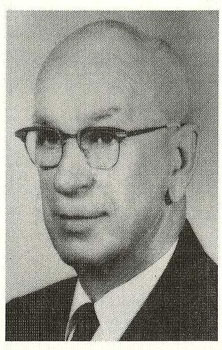
Frank Seymour (1895-1981)
Inducted 1994
Highlights
Florida Citrus Growers Clearing House Association
King of the Marketing Order
Associated Citrus Growers and Shippers of Florida
Florida Citrus Commission
Agricultural Marketing Agreement Act
Federal Marketing Order & Agreement Program
Producers Trade Association
Bio
Frank Seymour began his citrus career in 1928 when he joined the Florida Citrus growers Clearing House Association. He served as the chief of their accounting and statistics department. While with that organization, he helped write the industry’s first grading and packing regulations for fresh citrus. His life’s work was to organize and regulate the citrus industry. This accomplishment earned him the nickname “King of the Marketing Order.”
After the Clearing House Association folded Seymour joined the Associated Citrus Growers and Shippers of Florida, which functioned as a trade organization and became the springboard for the establishment of the Florida Citrus Commission. In 1938 came the newly-enacted Agriculture Marketing Agreement Act, which led to Seymour’s establishment of a Federal Marketing Order and Agreement Program. Marketing orders are locally administered by committees made up of growers and/or handlers, and often a member of the public. Marketing order regulations, initiated by the industry and enforced by USDA, bind the entire industry in a geographical location to maintain certain agreements. The agreement of his marketing order for the industry was to maintain the high quality of produce that is on the market, standardize packages and containers, regulate the flow of product to market, establish reserve pools for storable commodities, and authorize production research, marketing research and development, and advertising. There was also a provision that called for fines to be levied against any growers that knowingly violated this agreement. The main purpose of the order was to avoid unreasonable fluctuation of supply and prices and to stabilize the market. The program was so successful that the interior district growers quickly followed suit and another marketing order was established that included additional geographical locations.
During his career Seymour also worked in Washington D.C. for a commodities program. He was also on the Producers Trade Association, and was manager of the Growers administrative committee until his retirement in 1970.
